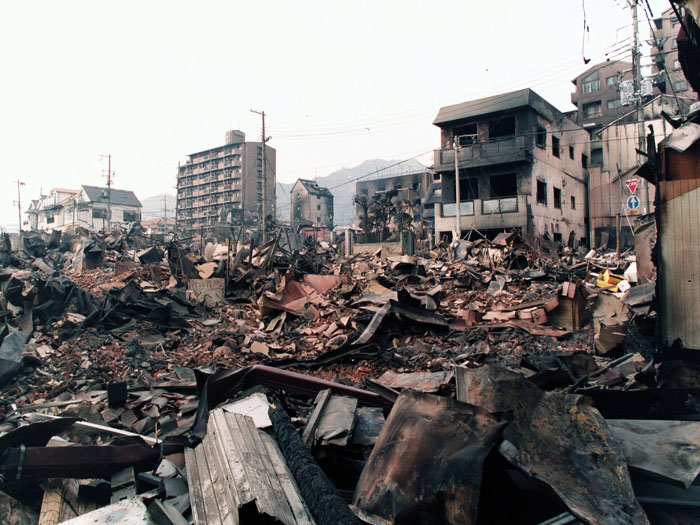Japanese mobile phones to warn of earthquakes
Early-warning quake system could make all the difference

Anyone who's ever been through a major earthquake will immediately recognise the value of an early-warning system being planned by Japan's largest mobile phone operators.
The three carriers - NTT DoCoMo , KDDI and Softbank - are working to come up with a mass-communication system. Alerts will be broadcasted to phones in the few seconds immediately after a quake strikes.
Phones saving lives
The idea is to give anything from a few seconds' to a minute's warning to minimise loss of life in such disasters. In the 1995 Kobe earthquake more than 6,000 people died, and 140,000 were killed in the Tokyo area during the Kanto earthquake of 1923.
Of the three companies, DoCoMo and KDDI are working together, while Softbank is developing its alert system separately. The technology used in each network will rely on central sensors operated by
Japan's meteorological agency. The sensors detect the weak primary waves that signal an earthquake has occurred.
These already relay information to some hospitals and factories. This allows them to shut down equipment suddenly or to take whatever action is possible in the time allowed.
Better than nothing
The interval between the primary waves and the arrival of the far stronger secondary waves is where time to issue a warning lies. People further from the quake's epicentre get the longest time to react before the secondary waves arrive. But even a few seconds could make a difference to those in most danger.
Get daily insight, inspiration and deals in your inbox
Sign up for breaking news, reviews, opinion, top tech deals, and more.
As for the method of delivering the warning to phones, that remains undecided. Although mass-mailing millions of phones would surely crash networks that already can't cope at traditional high-volume email times, such as New Year's Eve. Consequently, it's possible that dedicated earthquake-alert functions or communication channels may be added to future handsets.
J Mark Lytle was an International Editor for TechRadar, based out of Tokyo, who now works as a Script Editor, Consultant at NHK, the Japan Broadcasting Corporation. Writer, multi-platform journalist, all-round editorial and PR consultant with many years' experience as a professional writer, their bylines include CNN, Snap Media and IDG.